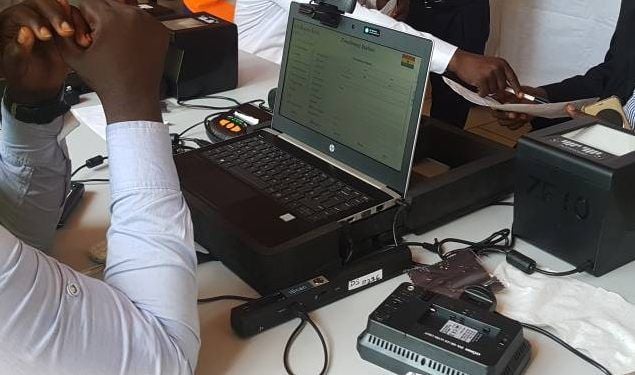The National Identification Authority (NIA) of Ghana has embarked on a significant initiative to register children aged 6 to 14 for the Ghana Card, the country’s national identification document. This undertaking, launched in September 2024, aims to establish a comprehensive National Identity Register (NIR) encompassing all Ghanaian citizens from a young age, fulfilling the NIA’s mandate to register every Ghanaian, both within the country and abroad. This proactive approach to early registration not only strengthens the national identity system but also lays the foundation for seamless access to essential services and opportunities for future generations.
The registration process for children in this age group is currently being conducted at designated NIA Premium Centers across the country. A fee of GHS310 has been established for first-time registration at these centers, reflecting the premium services provided. To facilitate the registration process, parents or guardians are required to provide supporting documentation for the child. Acceptable documents include a valid Ghanaian passport, a birth certificate, or, alternatively, a Ghana Card held by the parent or guardian who can vouch for the child’s identity. This structured approach ensures the integrity and accuracy of the registration process, safeguarding against potential inaccuracies or fraudulent applications.
Recognizing the importance of accessibility and convenience, the NIA has implemented an online registration and booking system. Initially rolled out at select Premium Centers, this system is slated for expansion to all 11 Premium Centers nationwide starting September 15, 2024. This online platform empowers applicants to schedule appointments at their convenience, eliminating the need for physical queues and minimizing potential delays. This digital approach reflects the NIA’s commitment to leveraging technology to enhance efficiency and streamline the registration process for citizens.
While the registration process for children aged 6 to 14 is underway, the issuance of Ghana Cards for those who have already registered is yet to commence. The NIA has announced that details regarding the issuance process will be communicated subsequently. This phased approach allows the NIA to meticulously process the accumulated registration data, ensuring the accuracy and security of the issued Ghana Cards. This measured approach prioritizes data integrity and aims to deliver a secure and reliable identification system for the nation’s youth.
Looking ahead, the NIA has confirmed plans to extend the child registration exercise beyond the Premium Centers to district offices nationwide. This strategic expansion aims to broaden the reach of the registration drive, making it more accessible to communities across the country. By establishing registration points closer to where people live, the NIA aims to reduce logistical barriers and encourage wider participation in the national identification program. This decentralized approach underscores the NIA’s commitment to inclusivity and ensuring that all eligible children have the opportunity to obtain a Ghana Card.
The NIA’s initiative to register children marks a crucial step in building a robust and comprehensive National Identity Register. By capturing demographic data from a young age, the NIA facilitates future access to essential services, including education, healthcare, and financial services. This proactive registration strategy not only strengthens the national identification system but also contributes to national development goals by creating a more inclusive and efficient society. The registration of children represents an investment in the future, empowering the next generation with a secure and verifiable identity that will unlock opportunities and contribute to their overall well-being.














